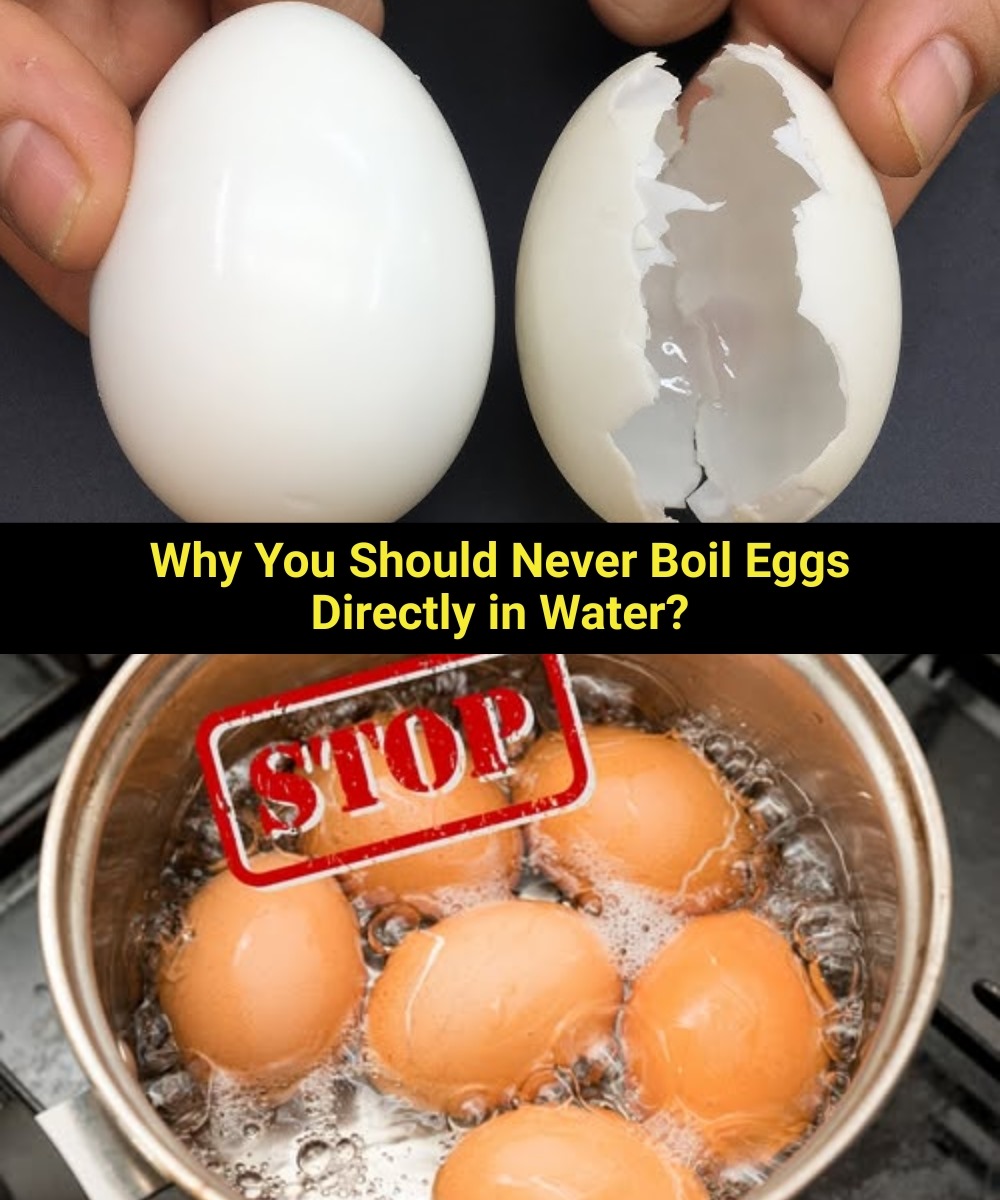Are You Cooking Eggs the Wrong Way Without Realizing It?
Boiling eggs may seem like one of the most basic kitchen tasks, but is it really the best way to do it? Tossing eggs directly into boiling water might not be the healthiest or most effective technique. In fact, it could be costing you both nutrition and ideal texture without you even knowing.
So what’s the issue with this go-to method? And what’s the chef-endorsed alternative that maintains nutrients, protects the shell, and brings out better flavor?
Why Boiling Eggs in Water Might Not Be Ideal
While boiling eggs in water feels like the norm, it actually comes with a few downsides:
Cracked Shells
The rapid heating and agitation in bubbling water often cause eggshells to crack, which leads to leaking whites and a messy finish.
Loss of Nutrients
Some essential compounds in eggs, including sulfur-based nutrients and trace minerals, can either react with chemicals in tap water or leak out through small fractures in the shell, reducing the egg’s nutritional value.
Tough Texture
Traditional boiling can result in rubbery whites or crumbly yolks, especially when timing is off, making for an inconsistent bite.
For illustrative purpose only
The Professional Tip: Steam, Don’t Boil
Chefs and wellness advocates alike now agree:
Steaming eggs is the superior method for consistent, nutrient-rich results.
Here’s why steaming stands out:
Heat is evenly distributed, so shells stay intact.
Steam loosens the membrane, making eggs much easier to peel.
Texture is creamier — whites stay delicate, yolks remain rich and golden.
Nutrient retention is higher compared to boiling.
% buffered
How to Steam Eggs Like a Pro
What You’ll Need:
A lidded pot
A steamer basket or rack
Fresh eggs
Around 1 inch of water
Instructions:
SEE NEXT PAGE
ADVERTISEMENT

